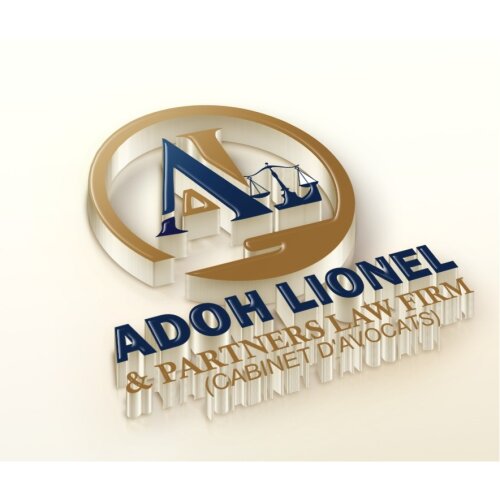Best Tax Increment Financing Lawyers in Douala
Share your needs with us, get contacted by law firms.
Free. Takes 2 min.
List of the best lawyers in Douala, Cameroon
About Tax Increment Financing Law in Douala, Cameroon
Tax Increment Financing (TIF) is a public financing method that has been increasingly used to spur economic development and infrastructure investments in various parts of the world, including Douala, Cameroon. TIF allows local governments to fund urban renewal projects by capturing future increases in property tax revenues that result from the new development. This means that rather than financing a project entirely through existing taxation, the projected rise in property values and the subsequent increase in property taxes are used to repay the costs of the investment. In Douala, TIF is often employed to rejuvenate underdeveloped areas, enhance public services, and stimulate private sector investment.
Why You May Need a Lawyer
Engaging in Tax Increment Financing in Douala may involve complex legal and financial arrangements. Here are common situations where legal assistance might be necessary:
- Project Structuring: Every TIF project involves significant planning and structuring to comply with local laws and objectives.
- Negotiating Terms: Working out favorable terms for all parties including local governments, developers, and other stakeholders.
- Compliance and Due Diligence: Ensuring all legal requirements and frameworks are followed diligently.
- Resolving Disputes: Legal counsel can be invaluable in resolving any financial, regulatory, or contractual disputes.
- Managing Risks: Identifying and mitigating potential risks associated with the financing and development process.
Local Laws Overview
In Douala, legal frameworks for Tax Increment Financing are nascent and evolving. Key aspects of local laws related to TIF include:
- Regulatory Approvals: Projects may require multiple levels of governmental approval.
- Project Eligibility: Not all areas or projects are eligible for TIF; they usually need to contribute significantly to urban renewal objectives.
- Financial Regulations: There are specific regulations regarding how funds are to be raised, held, and allocated.
- Public Involvement: Requirements for public consultation or involvement in the planning stages of TIF projects.
- Reporting and Transparency: Regular reporting to ensure transparency and accountability is expected.
Frequently Asked Questions
What is Tax Increment Financing?
Tax Increment Financing is a method used by local governments to encourage economic development by using future tax revenues generated by new developments to pay for current improvements.
How is a TIF district created in Douala?
A TIF district is created through a formal process that includes feasibility studies, public consultations, and approvals from municipal and regional authorities.
Who can initiate a TIF project?
TIF projects can be initiated by municipal governments in collaboration with developers or property owners interested in redeveloping a specific area.
What kind of projects can be financed with TIF?
Common projects include public infrastructure, housing developments, commercial properties, and other urban renewal initiatives.
Are there risks involved with TIF?
Yes, TIF projects carry certain risks such as changes in tax laws, market fluctuations, or project overruns that may affect projected revenues and repayment plans.
How is public interest safeguarded in TIF arrangements?
Local laws often require detailed project assessments, stakeholder engagement, and transparency in fund management to ensure public interest is maintained.
How long do TIF districts typically last?
TIF districts in Douala are usually established for a period of 15 to 25 years, after which the normal property tax distribution resumes.
Do TIF projects impact existing taxpayers?
TIF projects do not typically increase taxes on current residents. They rely on future tax revenue increments generated by the new developments.
Can TIF be used for residential projects?
Yes, TIF can be used to support residential projects, particularly those aimed at improving affordable housing and infrastructure in underdeveloped neighborhoods.
What is the role of a lawyer in TIF projects?
A lawyer provides guidance on compliance, structuring agreements, negotiating terms, risk management, and resolving any potential conflicts.
Additional Resources
For those seeking more information or assistance on TIF in Douala, consider reaching out to the following resources:
- Ministry of Urban Development and Housing
- Douala City Council
- Cercle Municipal de Douala
- Local chapters of international development organizations
- Legal firms specializing in finance and infrastructure.
Next Steps
If you find yourself needing legal assistance for a TIF project in Douala, consider taking the following steps:
- Consult a Specialized Lawyer: Engage a lawyer who specializes in public financing and urban development.
- Conduct a Preliminary Assessment: Work with your lawyer to assess the feasibility and legal implications of the proposed project.
- Prepare Documentation: Ensure all necessary documents and agreements are prepared and reviewed for compliance.
- Engage Stakeholders Early: Involve all stakeholders, including governmental entities and potential project partners, early in the process.
- Follow Legal Procedures: Adhere to all local regulatory requirements and obtain the necessary approvals before proceeding.
Lawzana helps you find the best lawyers and law firms in Douala through a curated and pre-screened list of qualified legal professionals. Our platform offers rankings and detailed profiles of attorneys and law firms, allowing you to compare based on practice areas, including Tax Increment Financing, experience, and client feedback.
Each profile includes a description of the firm's areas of practice, client reviews, team members and partners, year of establishment, spoken languages, office locations, contact information, social media presence, and any published articles or resources. Most firms on our platform speak English and are experienced in both local and international legal matters.
Get a quote from top-rated law firms in Douala, Cameroon — quickly, securely, and without unnecessary hassle.
Disclaimer:
The information provided on this page is for general informational purposes only and does not constitute legal advice. While we strive to ensure the accuracy and relevance of the content, legal information may change over time, and interpretations of the law can vary. You should always consult with a qualified legal professional for advice specific to your situation.
We disclaim all liability for actions taken or not taken based on the content of this page. If you believe any information is incorrect or outdated, please contact us, and we will review and update it where appropriate.
















